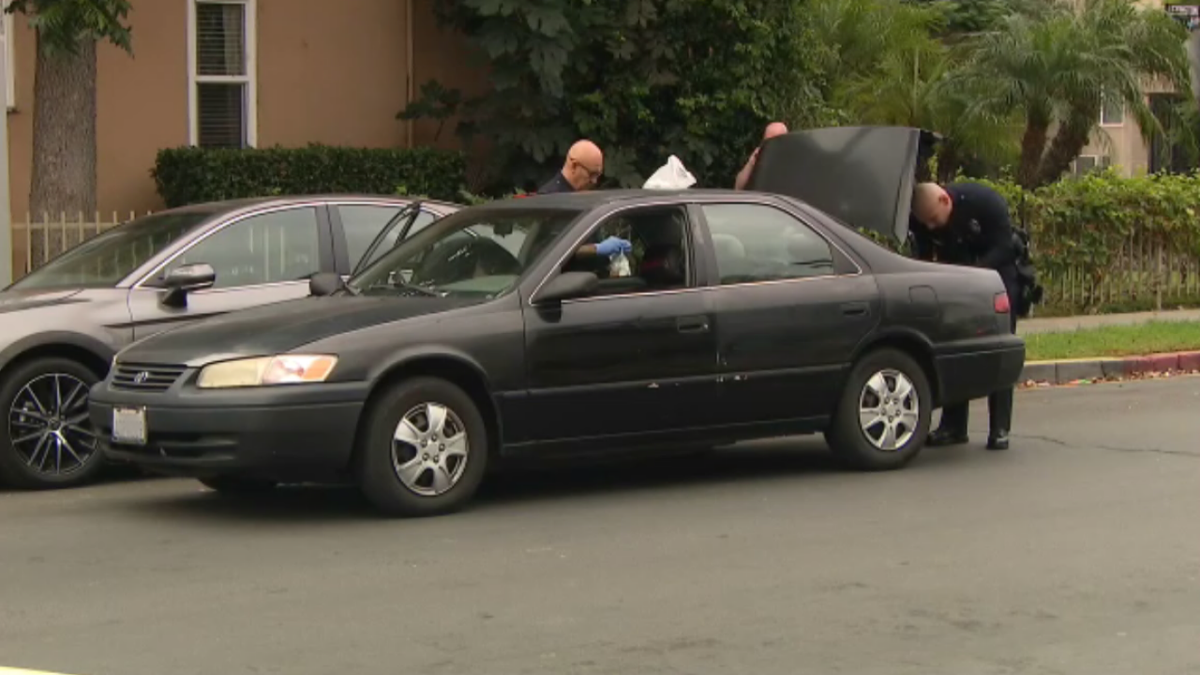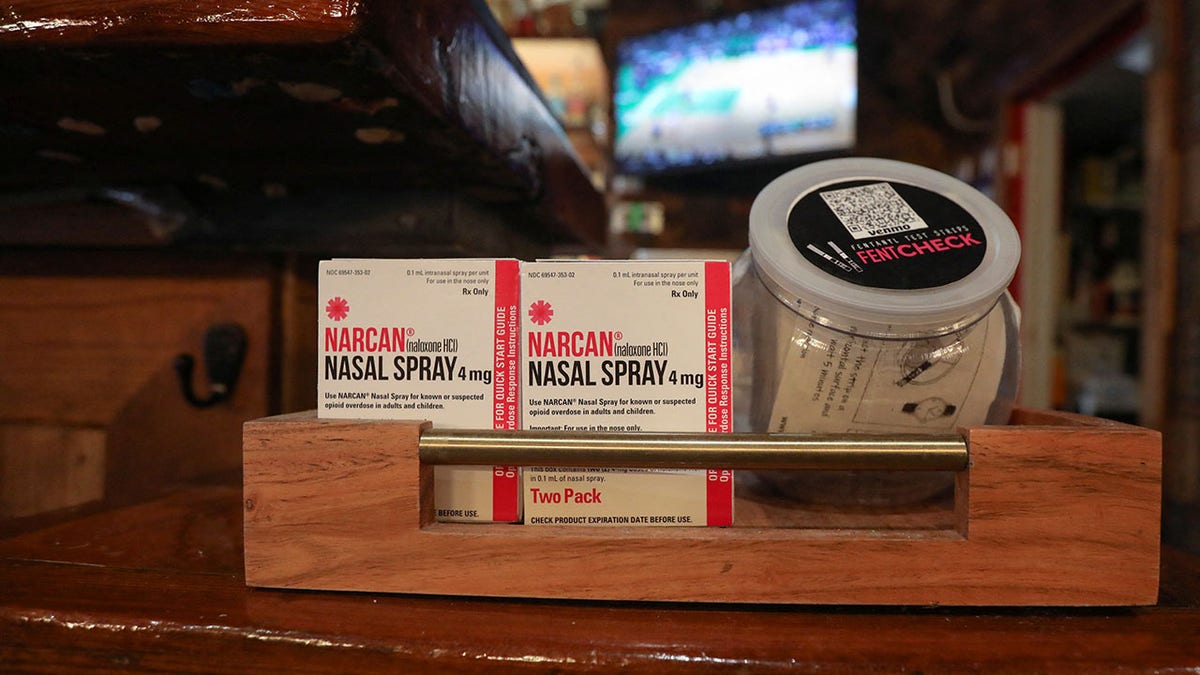Tom Homan: 'Historic' rainbow fentanyl busts linked to runaway border crisis
Former ICE Director Tom Homan weighs in after three illegal immigrants were discovered looting in Florida and responds to Joy Reid's claims that Gov. Ron DeSantis is racist for condemning looters.
Police and first responders taking calls involving potential exposure to fentanyl have been trained to believe in the grave harm in being exposed to the drug, a fear that research shows may be overstated.
"Officers are definitely thinking or feeling something, and it started based on things the DEA (Drug Enforcement Administration) said that they've since retracted," Brandon del Pozo, an assistant professor of Medicine and Health Services, Policy and Practice at the Warren Alpert Medical School of Brown University, told Fox News Digital. "There's still yet to be a toxicologically confirmed case of a police officer being exposed to fentanyl overdose by breathing air or touching it."
The comments come as stories of police officers overdosing or being hospitalized after an exposure to fentanyl have spread across the country, most recently in the case of a Hawaii police officer who self-administered a dose of Narcan during an overdose call after becoming ill.
However, del Pozo, who served as the Burlington, Vermont chief of police before starting his academic career, believes it is unlikely such cases were actually the result of an exposure to fentanyl.
HAWAII COP FORCED TO SELF-ADMINISTER DOSE OF NARCAN AFTER POTENTIAL FENTANYL EXPOSURE

Los Angeles police officers have uncovered fentanyl-laced pills while arresting drug dealers for recent overdose deaths. (Fox 11 Los Angeles)
"The science shows it's extremely implausible," del Pozo said. "It started with inaccurate information and that's been propagated across policing… it started with a kernel of truth, a tiny amount of fentanyl can in fact kill you, it just doesn't go through the air, it doesn't go through your skin."
According to a study led by del Pozo and published in BMC research last year, exaggerating the dangers of exposure to fentanyl risks aggravating "already elevated burdens of officer stress and burnout" among police officers.
The paper referenced multiple studies that showed the risk of illness as a result of unintentional exposure to fentanyl is extremely low, with one study arguing "it would take 200 min of breathing fentanyl at the highest airborne concentrations to yield a therapeutic dose, but not a potentially fatal one."
Nevertheless, del Pozo's research found that 79.8% of first responders agreed with the statement that "First responders who encounter fentanyl are at great risk of overdose by touching it or inhaling it."
HUSBAND JAILED FOR DEALING FENTANYL LESS THAN A MONTH AFTER HIS WIFE WAS BUSTED ON THE SAME CHARGES
Such widespread belief in the potential of being accidentally exposed to fentanyl originated as a result of a 2016 DEA release spread by the Justice Department, warning about the dangers of fentanyl exposure, including a warning that "fentanyl can be absorbed through the skin or accidental inhalation of airborne powder can also occur …. Just touching fentanyl or accidentally inhaling the substance during enforcement activity or field testing the substance can result in absorption through the skin …. The onset of adverse health effects, such as disorientation, coughing, sedation, respiratory distress or cardiac arrest is very rapid and profound, usually occurring within minutes of exposure"
However, del Pozo noted that the DEA release has since been pulled offline, though the agency has yet to issue a public retraction, while the National Institute for Occupational Safety and Health removed similar guidance it had previously issued on the topic.
The DEA did not immediately respond to a Fox News request for comment on the guidance.
However, Joe Gamaldi, the national vice president of the Fraternal Order of Police, argues he has seen plenty of examples of just how dangerous an exposure to fentanyl can be.
"We have plenty of documented cases," Gmaldi told Fox News Digital. "There's people that have passed out, we've seen those videos online, but there's plenty of anecdotal evidence and statistical data of officers just getting sick in general from being around the substances."
Gamaldi also argued that he has seen the dangers first hand during calls when officers were exposed to fentanyl.
"I've been there when officers have gone into places where they're cutting fentanyl or using it, and officers may not have even touched it, but just being around it, they begin to be lightheaded, they feel sick, they have to leave the room. I've been present when these things have occurred," he said. "So clearly, it is a danger to law enforcement and we absolutely need to be careful whenever we're around this stuff."
Gamaldi also took issue with the notion that officers may be more hesitant to respond to the scene of an overdose or one where fentanyl is present, saying that he has seen officers show no hesitation treating overdose victims.

Fentanyl test strips in a container and Narcan are seen at The Legionnaire bar in Oakland, California. (REUTERS/Nathan Frandino)
FENTANYL OVERDOSE DEATHS CLAIMING THOUSANDS OF AMERICAN LIVES; WHAT IS BEHIND THE RISE?
"I've seen my officers get right in there and immediately administer Narcan to the person and attempt to save their lives," he said. "Documented Narcan use is continuing to go up every single year. The more you provide it to law enforcement, the more we use it to help people."
However, del Pozo argues such examples of illness from fentanyl exposure share more characteristics with a panic attack than an actual overdose, noting overdose symptoms would take much longer to appear even if an officer were exposed to enough fentanyl to feel its effects.
He also stressed that the data shows such cases are extremely unlikely, pointing out that many people such as the family members or friends of drug users and the dealers themselves are exposed to fentanyl and have not experienced overdoses.
"People can feel ill for a lot of different reasons and then that's compounded by panic" del Pozo said, pointing to the Hawaii case and arguing that an officer who was actually overdosing would not be capable of giving themselves a dose of Narcan.
MICHIGAN OFFICER DETAILS HARROWING MOMENT HE COLLAPSED FROM FENTANYL EXPOSURE
He also pointed to a viral video that emerged out of Texas that showed a police officer apparently overdosing on fentanyl during a traffic stop, arguing the driver of the car remained unharmed during the incident.
"The Texas Department of Public Safety tweeted that a trooper did a car stop and had an overdose just being around the car," del Pozo said. "You have a guy driving long distance with the fentanyl in his car. He's fine. And then the cop just walks up and keels over…. that's a physiological reaction. Or maybe the officer genuinely feels ill or genuinely has a condition, or its a bit of panic."
However, del Pozo also stressed that the aim of the research is not to be critical of law enforcement officers who have acted rationally in response to information from what should be trustworthy sources.
"I am very sympathetic to the cops because when the DEA says you could die from being near fentanyl, and then the Department of Justice says it, and the National Institute for Occupational Safety and Health repeats it, and the National Police Foundation says it, these are trustworthy, authoritative sources," del Pozo said. "These are cops taking information from a very authoritative source about a very lethal drug and taking that misinformation heard and acting appropriately."

Mexican cartels are mass-producing fentanyl pills in rainbow colors. ( U.S. Drug Enforcement Administration (DEA))
CLICK HERE TO GET THE FOX NEWS APP
He noted that some have used the science as a way to attack the credibility of police, though he stressed telling the truth is actually one way of ensuring officer well-being and taking a worry off of their plate.
"There are opponents of American policing, who are using this as a way to embarrass and shame U.S. police, and in this case the opponents have science on their side, they're not wrong about the science," del Pozo said. "But instead of taking it from an officer safety and wellness perspective… they're basically saying cops are idiots."
"I was a police officer for 23 years," he continued. "I don't blame cops for acting accordingly, but it's just not true."










































